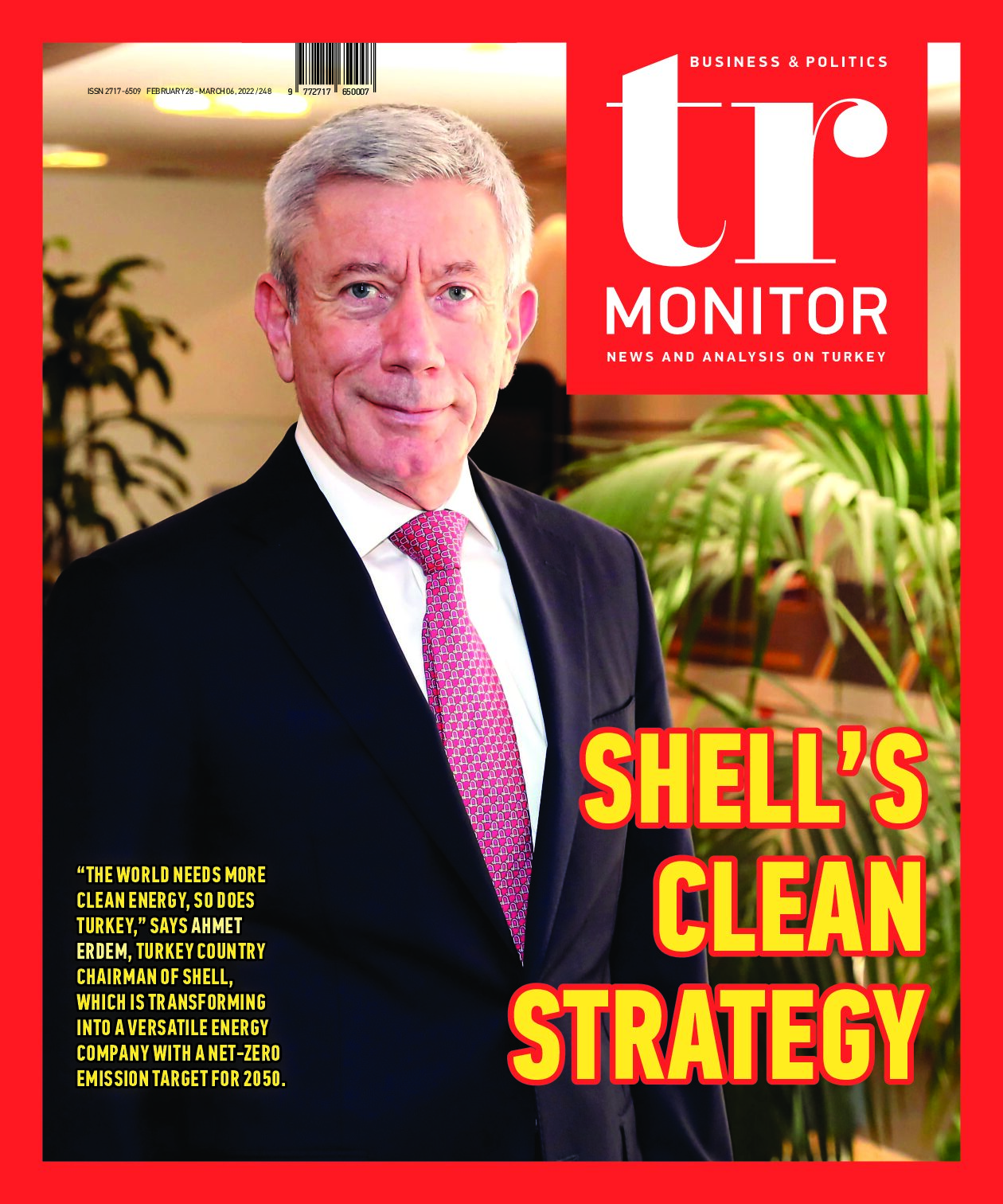By DIDEM ERYAR UNLU
As the provider of approximately 3% of the energy used globally, Shell aims to operate with net-zero emissions by 2050. “It is a fact that the world needs more, cleaner, energy. Shell believes in this and our transformation is taking place in line with the strategies drawn within from framework,” said Shell Turkey Country Chairman Ahmet Erdem, adding that Shell’s business portfolio and way of doing business have transformed it into a versatile energy company instead of an oil and gas company.
It is obvious that this transition is necessary for our planet, but there is no simple and single solution to this problem, according to Erdem. He thinks that from electricity generation to industry, transportation, and heating, a serious change in the global energy system is needed. “Renewables such as solar and wind are critical to clean energy, but first we need to work on new technologies and bring existing technologies to the point where they can be applied more easily,” he said.
Erdem also detailed the four-pronged energy transformation strategy implemented by Shell, which consists of creating value for shareholders, achieving net-zero emissions, supporting social development, and respecting nature.
New Energies business line established
Since 2019, Shell has had a business line called ‘New Energies’, in which over USD 2bn is invested every year. In line with the company’s 2050 net-zero emission target, this business line has begun to implement practices that ensure energy efficiency and prevent greenhouse gas emissions in the operations, facilities, stations, and offices owned by Shell. “We are striving to develop low-carbon technologies and low-carbon products that increase efficiency. In this context, the priority is to reach zero emissions, starting from our operations,” Erdem noted. USD 1bn is allocated annually for research and development
Reducing carbon emissions by Shell customers by selling more renewable energy sources will follow suit. Working with decision-makers to play a role in shaping the incentives and regulations necessary to accelerate this transformation is also important for Shell.
Shell Turkey Country Chairman Ahmet Erdem also discussed steps that will be taken to become net-zero by 2050. Shell takes 2016 as a base and plans to reduce its total carbon emissions from 2016 by 20% by 2030. This rate will rise to 45% by 2035 and 100% by 2050. “We will also have reduced the emissions from our operations by a net 50% in 2030,” he added.
The company is also working on solutions for unavoidable carbon emissions. Studies on carbon capture techniques and nature-based techniques to make these sustainable have begun.
Contributing to Turkey’s sustainable energy future
Operating in Turkey since 1923, Shell attaches great importance to meeting Turkey’s energy needs sustainably and safely, Erdem said. Shell hosts more than 1 million customers every day in its network of more than 1,000 stations spread all over Turkey, and it supplies fuel to more than 500,000 motor vehicles and hundreds of construction sites each day.
Shell is transforming stations across Turkey into stations that provide electricity from solar energy. The company, which has converted 13 stations so far, meets 30% of its electricity needs with solar at these stations, with a total installed power of 550 kW. The number of stations that get their electricity from solar energy will be increased to 85 by the end of 2022.
Shell has achieved financial savings of up to 10-15% so far thanks to these pilot projects in Turkey.
Green hydrogen, BioLNG, and electric vehicles
As a highly import-dependent country in energy, the increase in energy demand in Turkey will continue, Erdem stressed. Turkey imports an average of 95% of the natural gas and oil it needs, so the price and cost of energy in the country depend on global energy prices. Imports will decrease when successful exploration in the Black Sea is completed and production begins, according to Erdem. The government plans to integrate the natural gas found in the Black See into its system in 2023. “However,” said Erdem, “In the meantime, the country needs to focus on energy efficiency, where we can make a quick gain in reducing carbon emissions. Energy efficiency has very important effects, ranging from its positive impact on the family budget to the company budget to the country’s budget.”
He cites the green hydrogen investments of Shell as steps the company is taking to support these technologies. In addition, Shell introduced the use of LNG in trucks as road transport for the first time in Turkey. Part of its transportation fleet was transformed into LNG trucks. The company also offers LNG to its customers in Turkey so that the logistics industry can maintain its competitive position in international markets. “We also are conducting research on low-emission LNG, which we call Shell BioLNG,” Erdem noted.
In addition, the company is trying to establish its infrastructure for electric vehicles with the service provided at Shell stations with the Shell Recharge brand. “This transformation will accelerate with the launch of an electric car by Turkey’s Automotive Joint Venture Group (TOGG), the increase in electric models in the portfolio of vehicle manufacturers, the advancement of technologies, and a decrease in costs,” said Erdem, adding that Shell has been investing heavily in these issues since the mid-2010s and it currently provides access to nearly 300,000 charging points in 35 countries.
Derince facility to source 25% of its energy from solar
Shell’s lubricants and grease production facility in Derince, Turkey, has been the sole facility in this segment in the Mediterranean basin since its foundation in 1963. The facility, which produced over 130 million liters of mineral oil and grease in 2021, is an export champion year over year. Over 32,000 tons are exported directly to 65 countries and indirectly to nearly 100 countries from the facility. The facility has a Zero Waste Certificate approved by the Provincial Directorate of Environment and Urbanization thanks to its waste management system. The roofs of the buildings of the facility are covered with a total of 2,744 solar panels producing a total installed power of 1MW. The system, which uses double-sided panels with the ability to generate electricity from both surfaces, can use both sunlight reflected from the ground and scattered in the environment. The use of solar energy, which will meet 25% of the facility’s electricity need, will prevent approximately 500 tons of carbon emissions per year. Additionally, more than 50 stations will be equipped with solar panels by the end of 2022, meeting 35% of energy needs.
Converting gas stations into EV charging hubs
>> Shell provides access to nearly 300,000 charging points for electric cars in 35 countries.
>> The company directly oversees nearly 85,000 of these and the rest are offered through collaborations and partnerships.
>> Shell acquired NewMotion in 2017 and Greenlots in early 2019. Together, the two companies sell and install charging points for homes, workplaces, destinations, and depots, operating nearly 80,000 charge points.
>> Shell signed an agreement with high-powered charging network operator IONITY in 2017 to offer charge points across ten European countries starting with 80 of its biggest highway stations, allowing drivers to travel long distances with confidence for the first time.
>> Shell acquired 100% of Ubitricity, the UK’s largest public electric vehicle charging network, in 2021. Ubitricity, founded in Germany, is a leading provider of on-street charging for electric vehicles. It holds 13.1% of the UK’s car charging points market.
>> In Turkey, charging stations are being piloted at approximately 10 stations. The company aims to exceed 45 stations with EV charging units by the end of this year.










